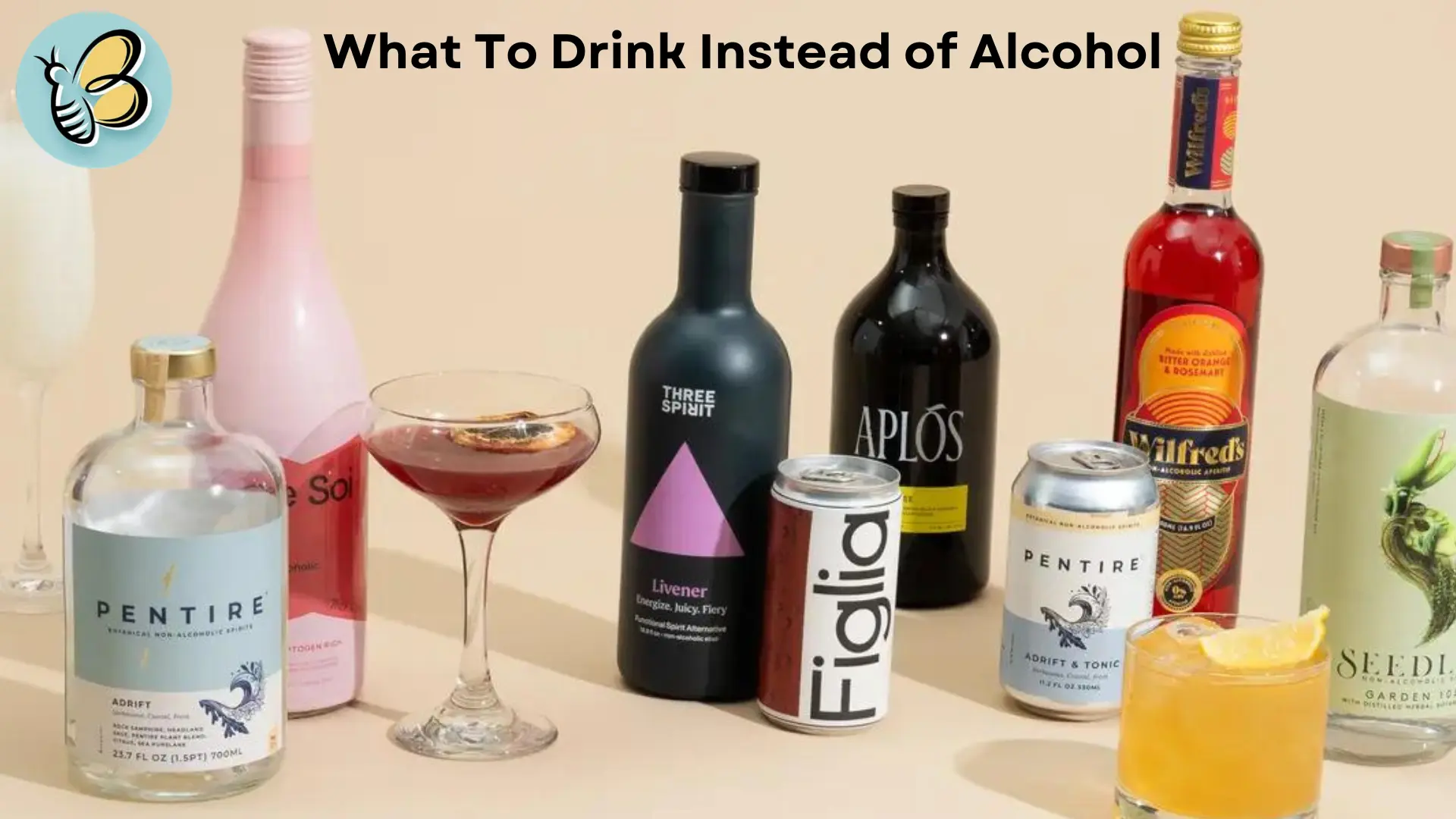We’re super happy to have you here! We know you are planning to cut back on alcohol, so yes, its quite challenging. Alcohol often feels like the easiest choice for unwinding or socializing. But what if you had equally satisfying alternatives?
You have heard it right from flavored sparkling waters to adaptogenic drinks that calm the mind, these options offer a pleasurable experience without alcohol’s downsides. We strongly believe cutting back does not mean missing out on fun, and many of these drinks are perfect for group settings. To make your challenge easy peasy we have compiled a list of fantastic alternatives for your next craving. Let’s explore together.
Nonalcoholic Beer
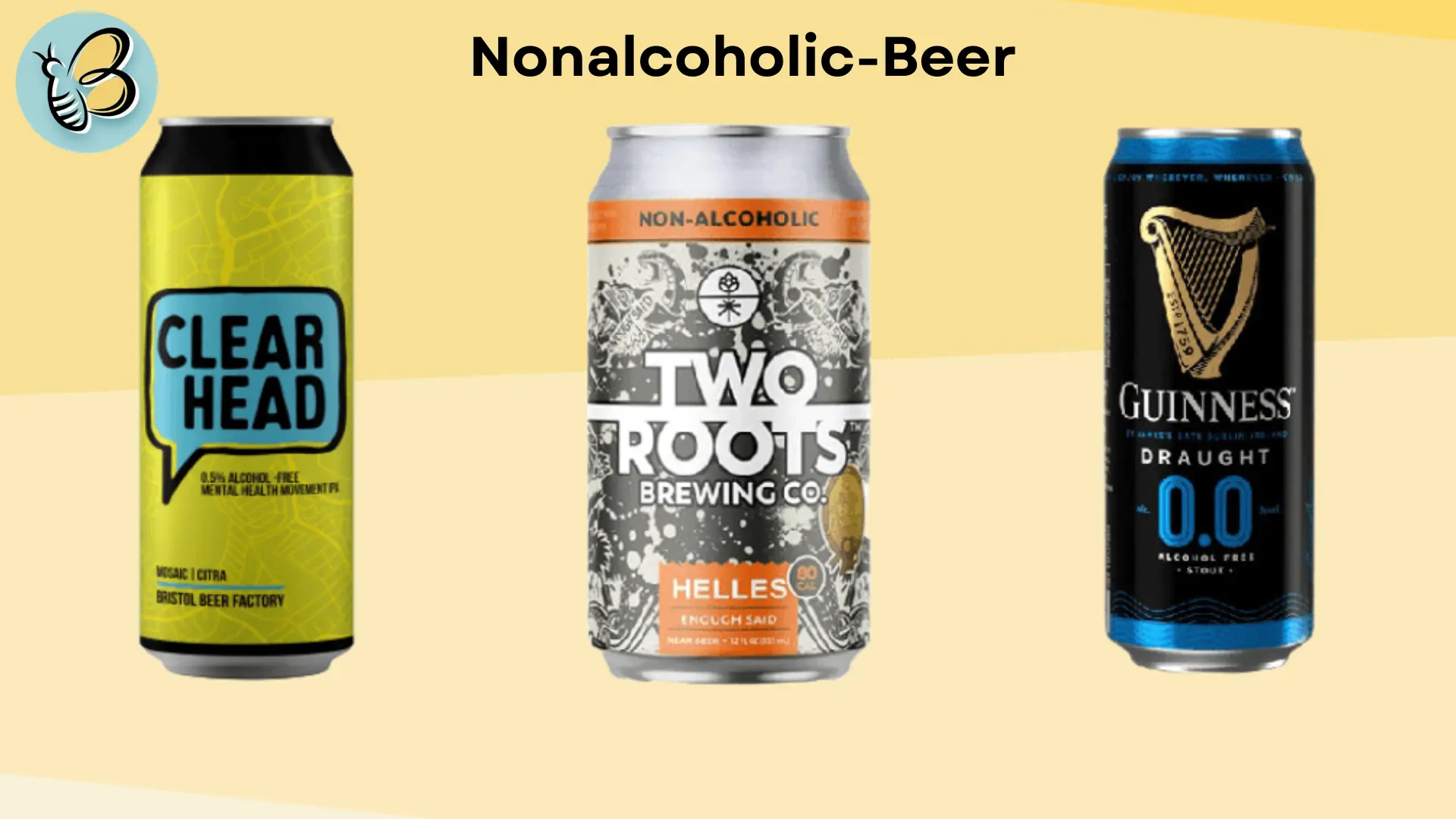
Nonalcoholic beer offers a refreshing and satisfying alternative for those looking to reduce their alcohol intake. Brewed with traditional ingredients like water, malt, hops, and yeast, its key distinction lies in the significantly reduced or removed alcohol content. Through techniques such as vacuum distillation or halting fermentation early, the alcohol level remains below 0.5% ABV, allowing these beverages to qualify as nonalcoholic in most countries. Beyond being a great substitute, research has shown that Nonalcoholic beer may also provide additional health benefits, supporting a substance-free lifestyle, thanks to the antioxidants and polyphenols in hops and barley, which can help reduce inflammation and support heart health.
Nonalcoholic Cider
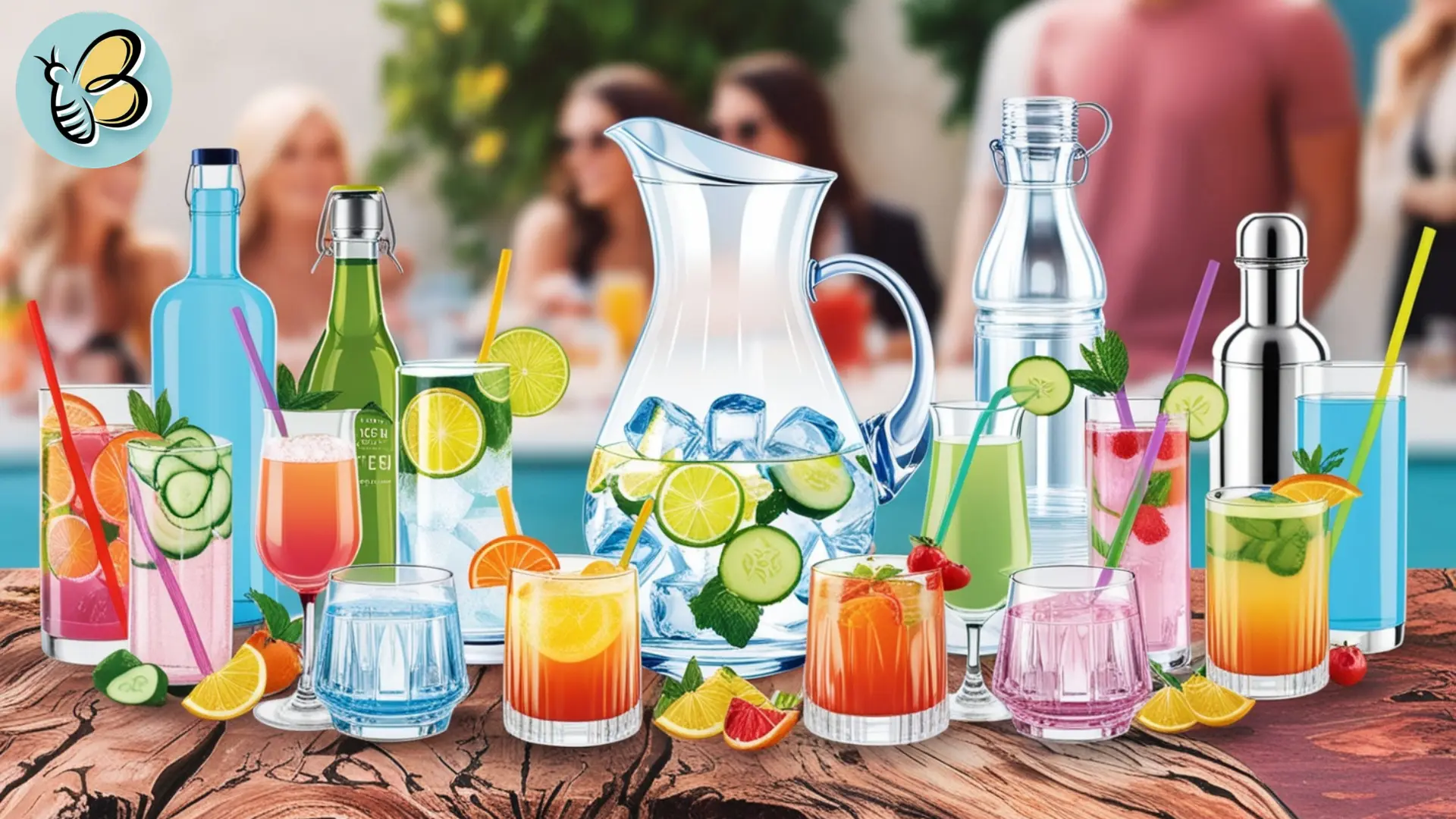
Traditionally prepared from fermented apple juice, cider has long been a popular beverage, especially at social gatherings and seasonal events. The production process is quite like that of nonalcoholic beer, beginning with the fermentation of apple juice but differing primarily in that the alcohol is either removed or prevented from forming altogether. Techniques like reverse osmosis filter out the alcohol, while stopping fermentation early helps maintain a product with less than 0.5% alcohol by volume (ABV), which is classified as nonalcoholic in most countries. With its versatility and compatibility with various foods, nonalcoholic cider is an ideal choice for dinners, parties, and seasonal celebrations instead of Alchohol.
Club Soda with Bitters
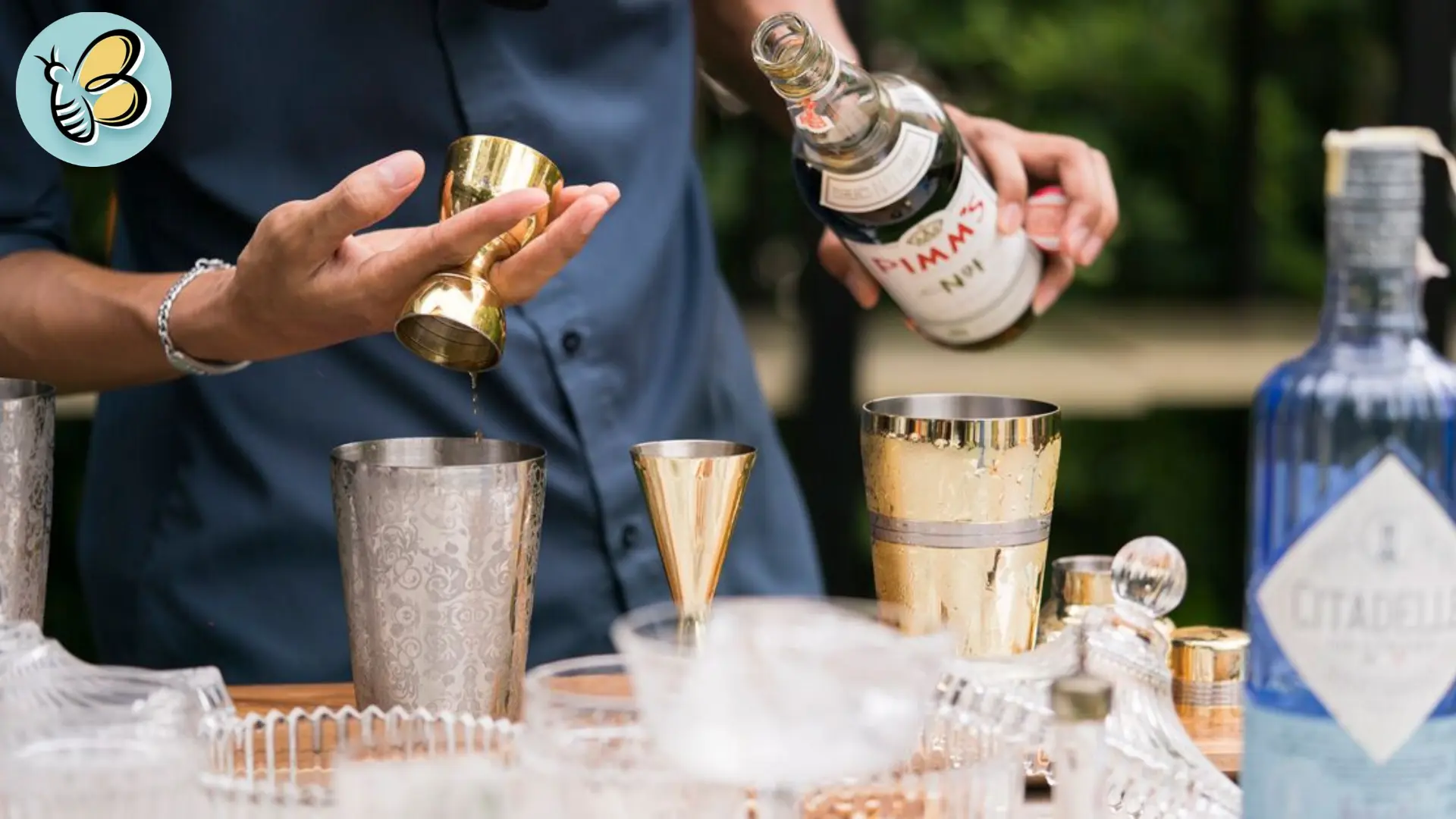
Club soda with bitters has become a sophisticated and refreshing alternative for those looking to skip alcohol while still enjoying a flavorful drink. Essentially, it’s carbonated water that provides a crisp, bubbly base that’s hydrating, calorie-free, and incredibly versatile. While bitters do contain alcohol, only a few drops or dashes are used, so the drink stays nonalcoholic. This small amount of bitters adds a rich layer of flavor without compromising its alcohol-free nature, making it perfect for anyone who wants to enjoy the ritual of drinking without the buzz.
Virgin Bloody Mary
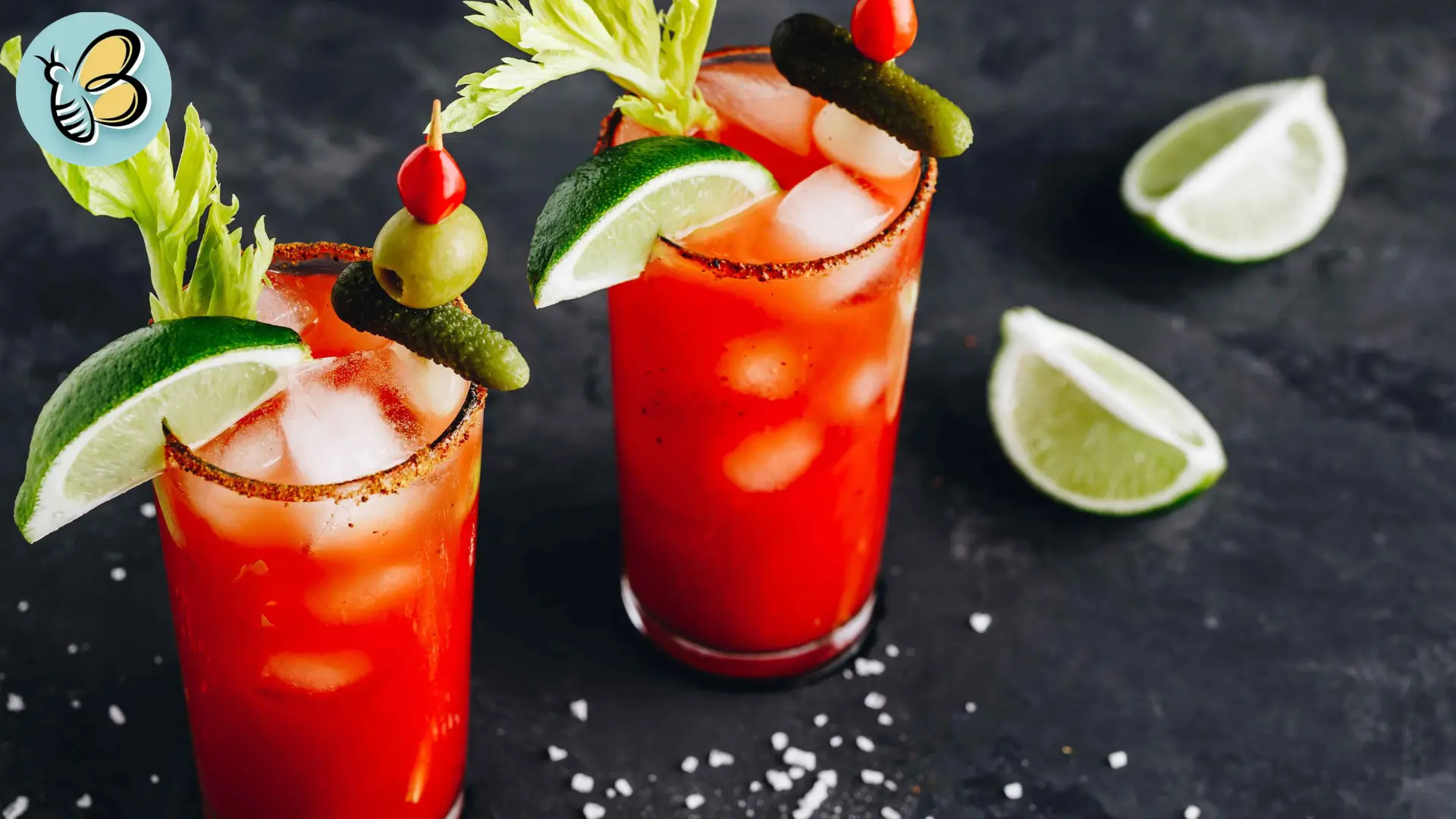
A Virgin Bloody Mary stands out as a bold and flavorful alternative to the classic cocktail, offering all the complexity and taste without the alcohol. This nonalcoholic version of the beloved brunch staple is perfect for those who wish to indulge in the savory depths of a cocktail while avoiding alcohol. With its vibrant combination of ingredients, the Virgin Bloody Mary is not only a refreshing choice for health-conscious individuals and those reducing their alcohol intake, but it also delivers a satisfying drink experience that doesn’t compromise on flavor. The base of this drink is rich tomato juice, which is not only delicious but also packed with vitamins A, C, and potassium.
Mocktails
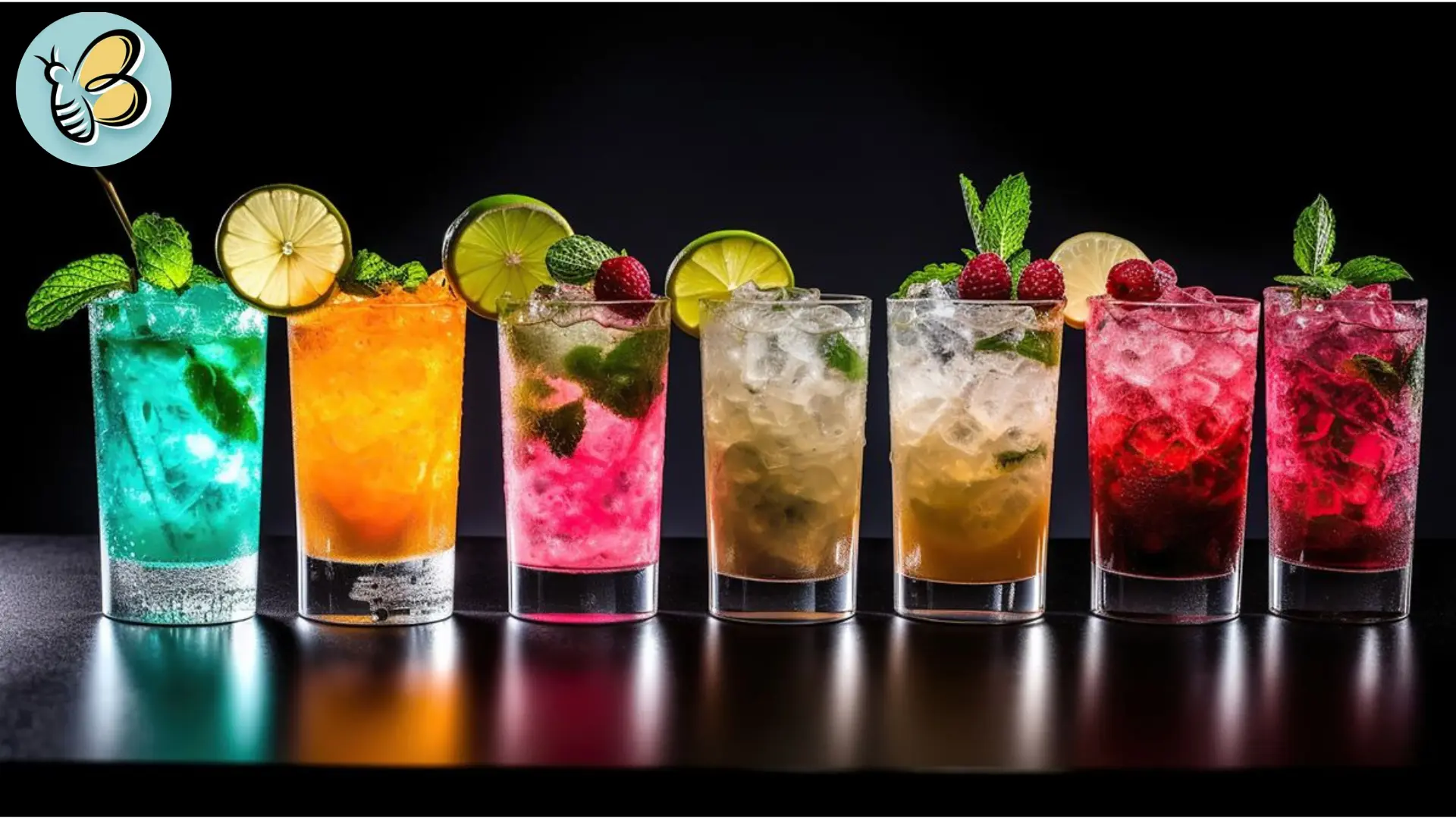
If you’re looking for a fun way to enjoy drinks without alcohol, mocktails are a fantastic choice. They offer a wide range of flavors and experiences, making it easy to join in the social side of drinking without the effects of alcohol. Made with ingredients like fresh fruit juices, herbs, and sparkling water, mocktails are often lower in calories and free of alcohol’s dehydrating effects. Many also incorporate superfoods and antioxidant-rich ingredients like berries, ginger, and citrus, adding a health boost to your glass. For example, ginger-infused mocktails not only taste great but can also aid digestion and reduce inflammation, offering a delicious, health-conscious option.
Kombucha
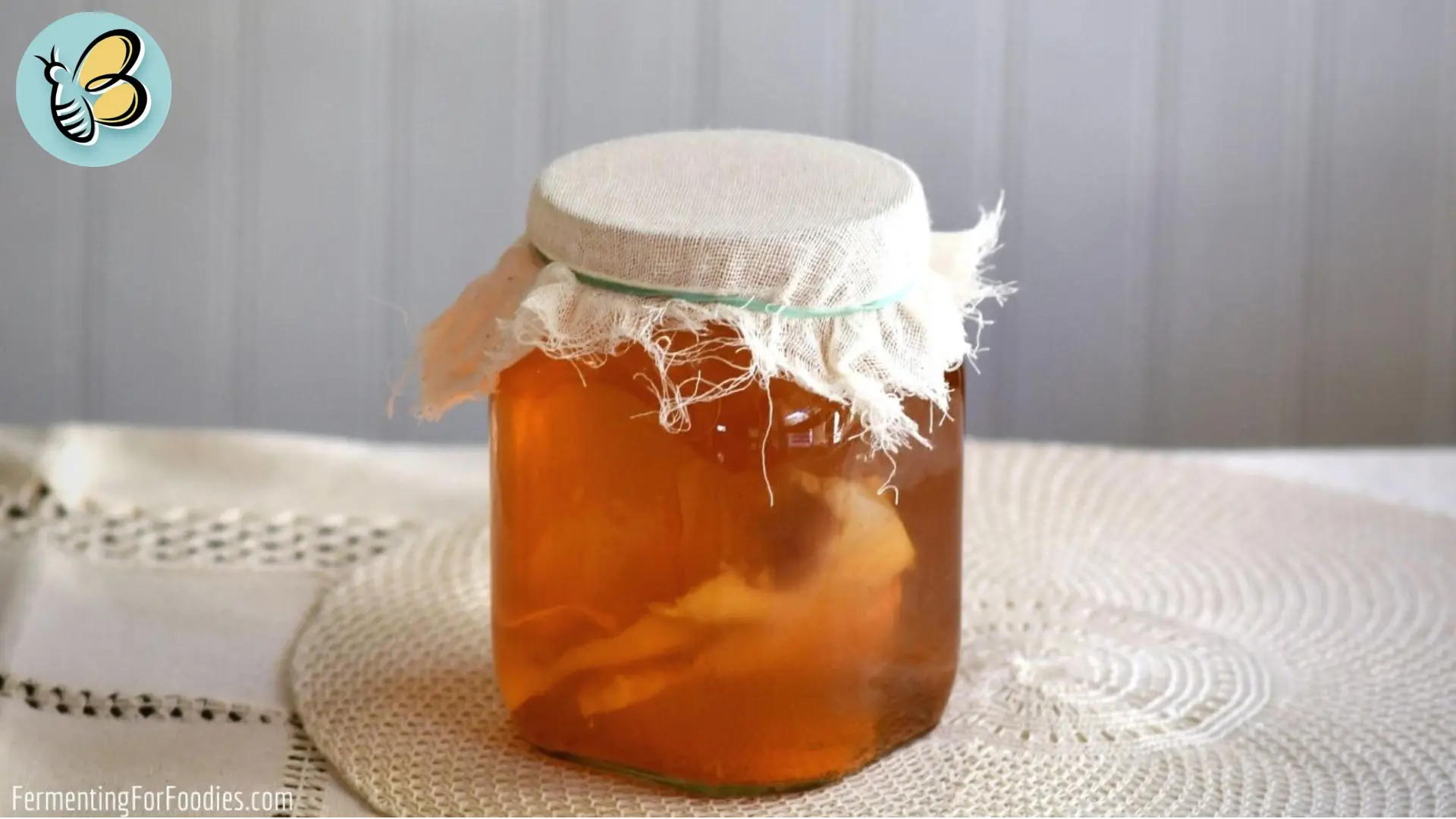
Kombucha is a top class alternative to alcohol offering a tangy, effervescent drink that can satisfy the craving for something fizzy without the intoxicating effects. Brewed from green or black tea, this fermented tea comes in a variety of fruity flavors like ginger, lemon, raspberry, and passionfruit. Kombucha has become more accessible in grocery stores and online, making it a great choice for those looking to cut back on alcohol or find a tasty nonalcoholic option.
Beyond its taste, kombucha is also lauded for its health benefits, particularly its probiotic content. Research shows that a healthy gut can contribute to better mental well-being, as the gut-brain axis connects digestive health to mood regulation.
Sophisticated Soft Drinks
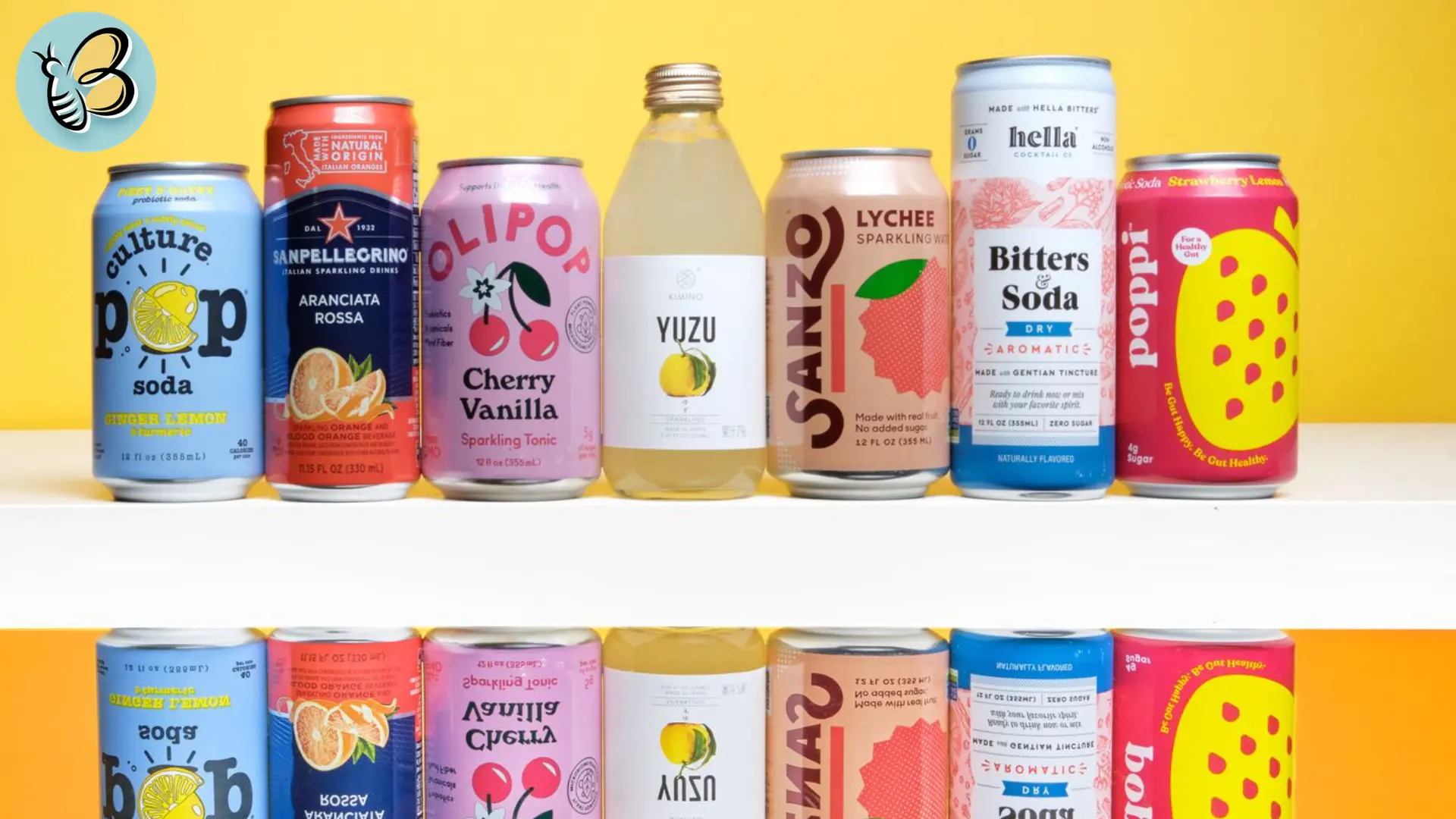
As the trend toward mindful drinking continues to grow, sophisticated soft drinks are emerging as trendy alternatives to alcoholic beverages. Brands are now manufacturing beverages that mimic the complexity and depth of flavor often associated with cocktails, allowing adults to enjoy a flavorful experience without the alcohol. 20 Juices add to the mix with their fruity bursts, providing enticing options like Apple and Mango and Orange and Passionfruit that can easily rival traditional cocktails. While these drinks are exciting, it’s important to be mindful of their sugar content, as many can be higher in sugar than expected. Moderation is key, and pairing these beverages with soda water can help manage your overall sugar intake while still enjoying vibrant flavors.
Shrubs
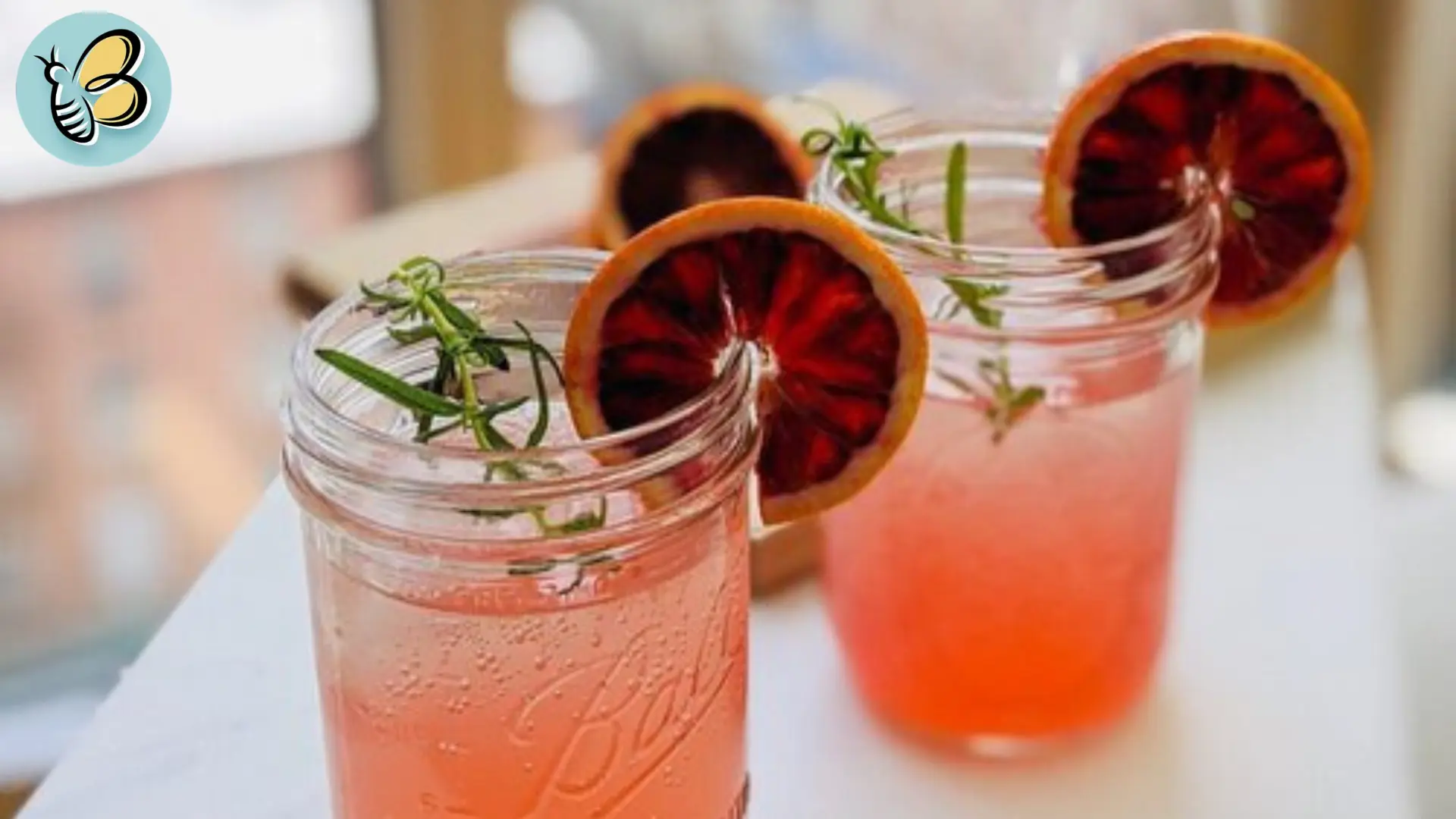
Shrubs are gaining popularity as a flavorful and refreshing alternative to alcoholic beverages, offering a unique tangy taste that can elevate any social occasion. Shrubs are non-alcoholic syrups made from a combination of concentrated fruits, aromatic spices, sugar, and vinegar. This delightful blend not only provides a complex flavor profile that can mimic the depth of cocktails but also serves as a fantastic companion to food, enhancing the dining experience. One of the greatest advantages of shrubs is their homemade potential. To make a basic shrub, all you need is fresh fruit, sugar, and vinegar; the result is a vibrant syrup that can be stored in the refrigerator for weeks. The combination of these ingredients can also contribute to digestive health, as vinegar is known for its probiotic properties.
Sparkling water with flavorings
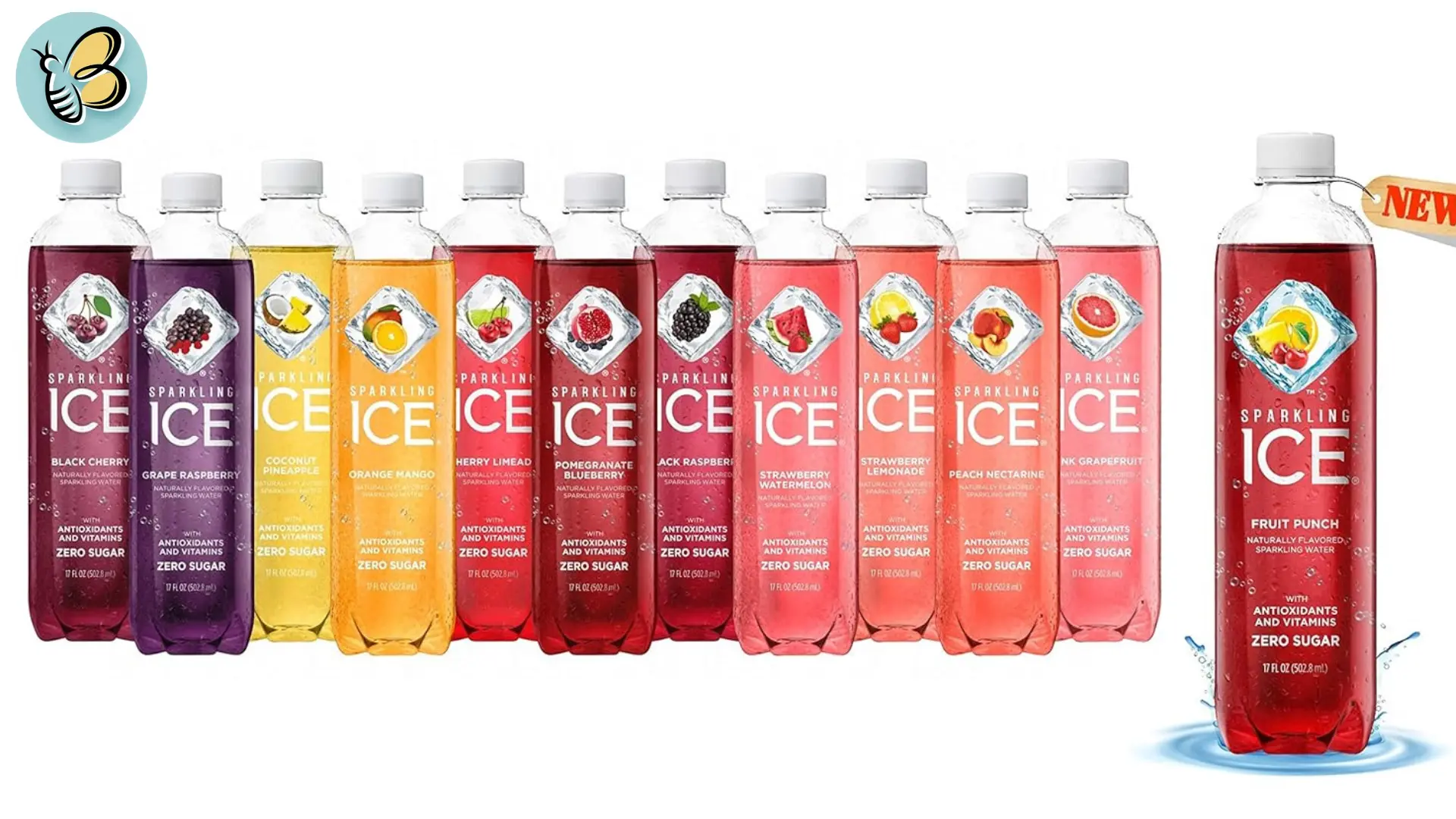
Craving something bubbly and flavorful without the alcohol? Flavored sparkling water might just be the perfect choice. This fizzy drink combines the crispness of carbonated water with a variety of natural flavors, from classic citrus like lemon and lime to more unique blends like mango or cucumber mint. It’s an ideal option for those who want the refreshing feel of a cocktail without the alcohol, making it a versatile choice for everything from social gatherings to relaxing at home
Sparkling Water with a Slice of Fruit
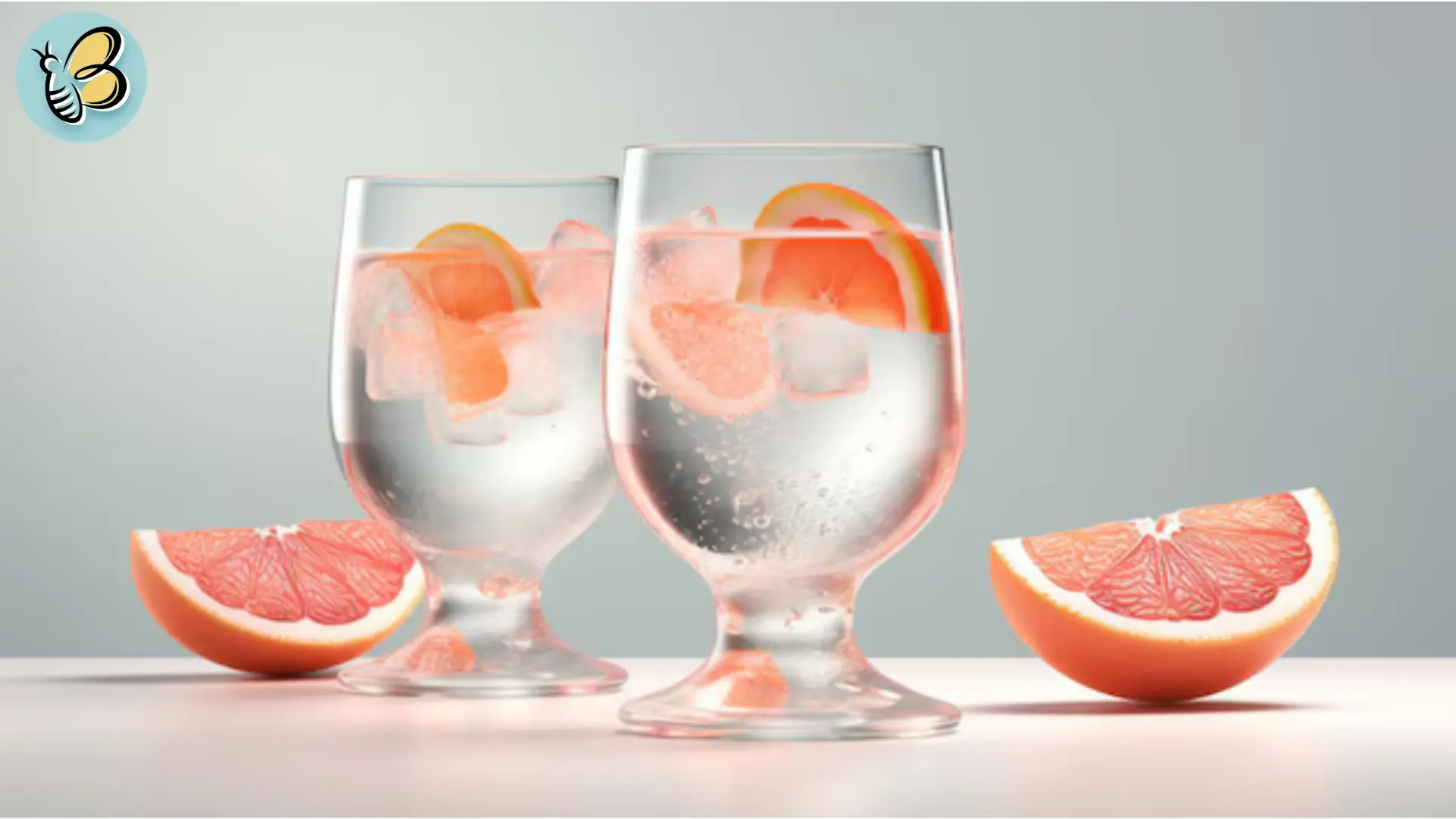
This simple yet refreshing combination provides the effervescence of sparkling water while enhancing the drink’s flavor profile with natural, vibrant tastes. This drink is perfect for various occasions, from casual get-togethers to elegant brunches, allowing individuals to enjoy a festive beverage without the effects of alcohol.
The health benefits of sparkling water with a slice of fruit are noteworthy. Unlike sugary sodas or cocktails, this drink is typically calorie-free and hydrating, making it an excellent choice for those monitoring their sugar intake or aiming to maintain a healthy lifestyle. The fruit slice contributes vitamins and antioxidants without adding significant calories. This refreshing option provides a sophisticated yet simple way to partake in social rituals without compromising health goals.
Coconut Water
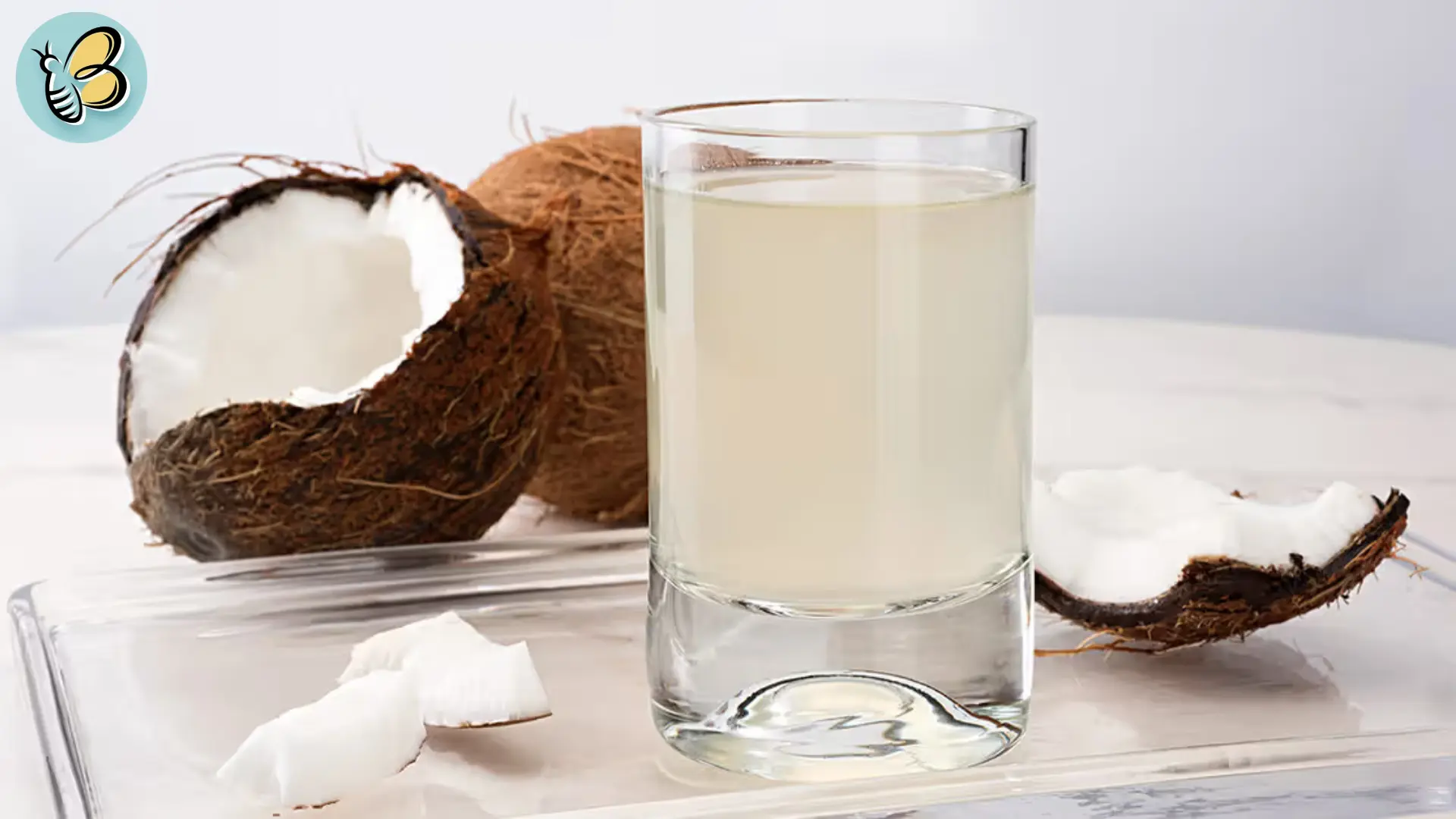
Often referred to as “nature’s sports drink,” coconut water is the clear liquid found inside young green coconuts. It is rich in essential electrolytes such as potassium, sodium, and magnesium, making it an excellent choice for rehydration, especially in social settings where people might enjoy a drink but wish to avoid alcohol. With its mildly sweet flavor and light texture, coconut water serves as a delightful option for those looking to maintain a healthy lifestyle while still enjoying a flavorful beverage.
From a health perspective, coconut water has several benefits that make it a standout alternative to traditional alcoholic drinks. Research highlights its hydrating properties, which are beneficial for maintaining fluid balance and replenishing electrolytes lost during physical activity or while seeking creative ways to motivate yourself to work out in heat exposure.
Fruit-infused Water
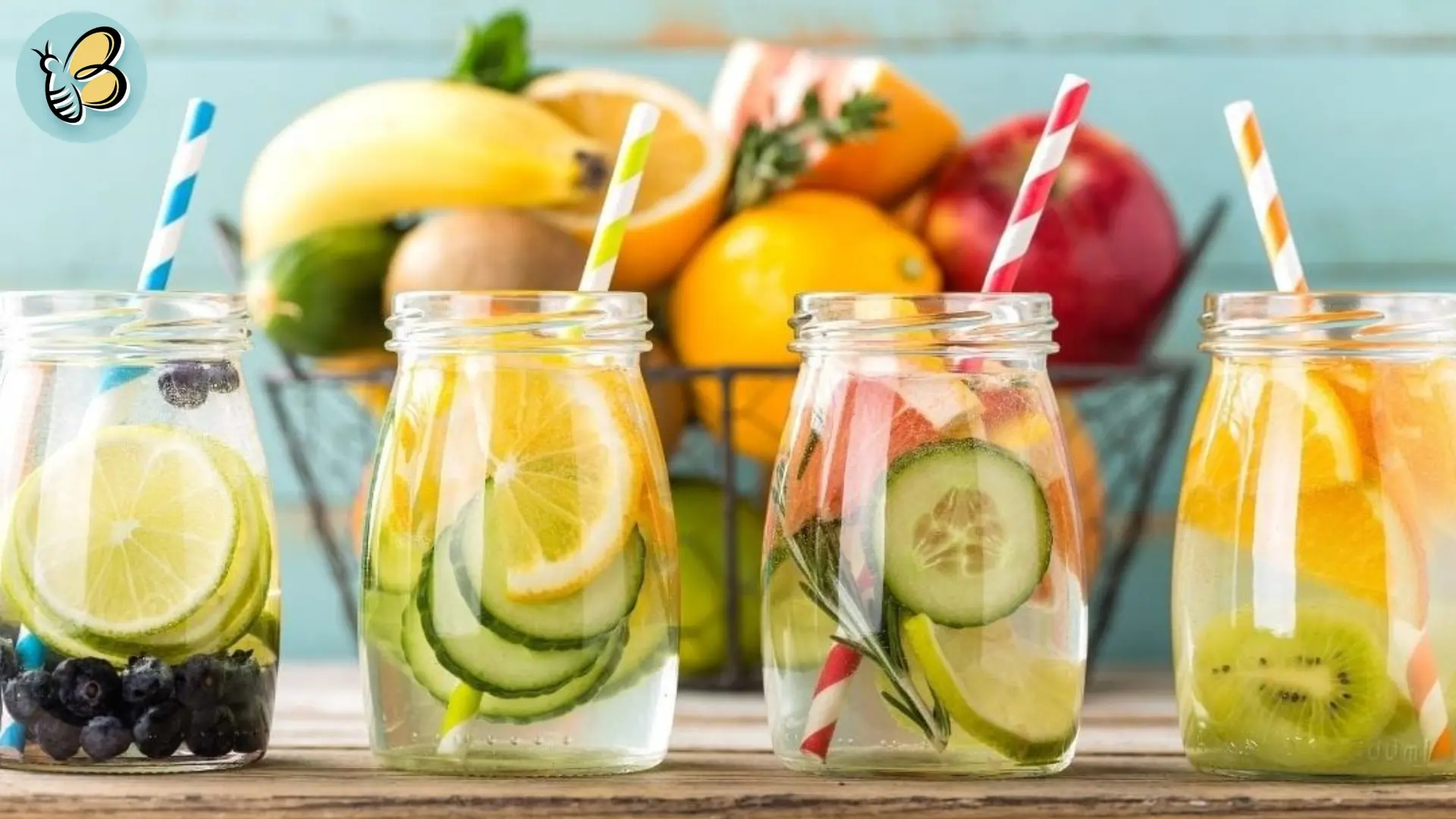
This simple yet delightful drink involves infusing plain water with a variety of fresh fruits, herbs, and even vegetables to create a unique flavor profile tailored to individual preferences. From classic combinations like lemon and cucumber to more adventurous mixes like strawberries and basil or orange and mint, the possibilities for fruit-infused water are endless. Not only does it offer a visually appealing presentation, but it also encourages increased water intake, making it a perfect choice for social gatherings or casual enjoyment.
Matcha Tea
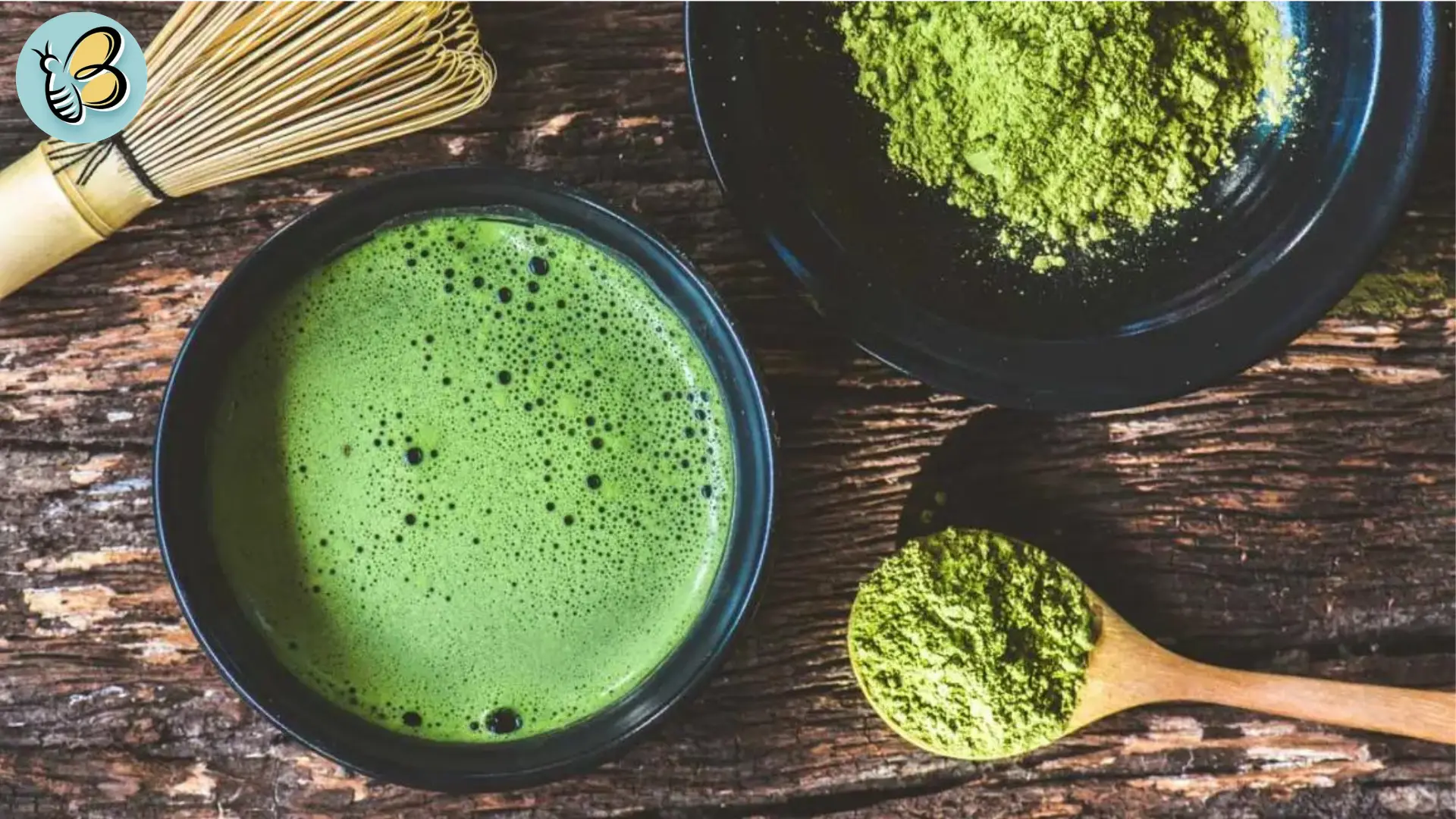
Matcha tea has emerged as a sophisticated and healthful alternative to alcoholic beverages, offering a unique flavor profile and a range of health benefits. Originating from Japan, matcha is a finely ground powder made from specially grown green tea leaves, which are shade-grown to enhance their flavor and nutritional content. This vibrant green tea is known for its rich umami flavor and smooth, creamy texture, making it an excellent choice for those seeking a refreshing beverage without the intoxicating effects of alcohol.
Herbal Tea
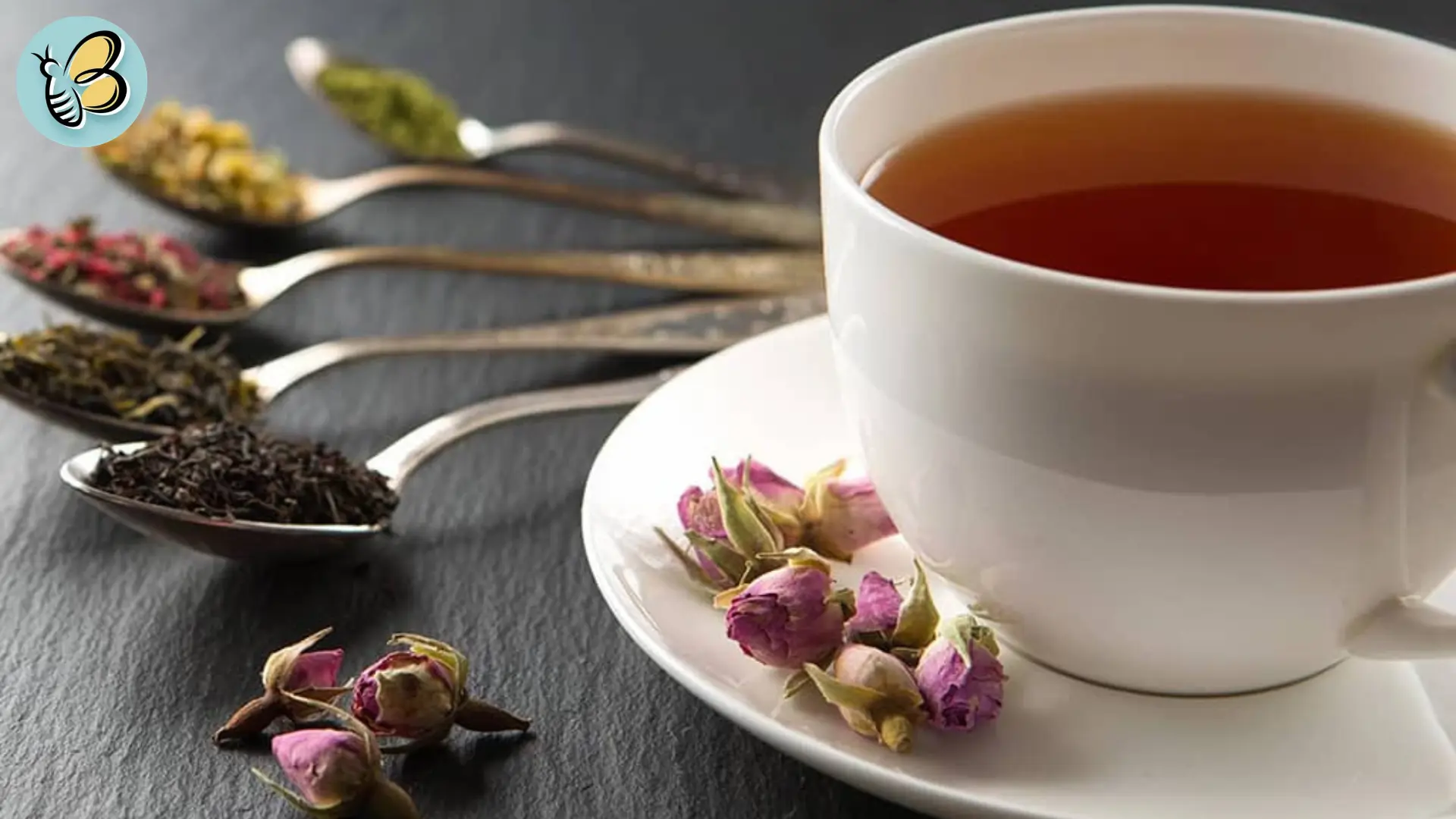
Why not swap your usual drink for a calming cup of herbal tea? This alcohol-free option is not only soothing but also packed with flavor, thanks to blends of herbs, flowers, fruits, and spices. Unlike traditional teas, herbal teas offer a wide range of tastes and benefits. Whether you prefer the gentle notes of chamomile, the refreshing kick of peppermint, or the bold tang of hibiscus, there’s something for everyone. Plus, sipping on herbal tea is a mindful way to relax while also supporting your overall well-being.
Adaptogen Blends
Looking for a natural way to unwind without alcohol? Adaptogen blends might just be the answer. These powerful plant-based substances, like ashwagandha, rhodiola, and reishi mushrooms, are known for helping the body manage stress and restore balance. With a variety of health benefits and an easy-to-use format, whether as powders or teas, adaptogens are becoming a go-to option for people looking to feel calm and centered, all while cutting back on alcohol.
Alcohol-Free Spirits
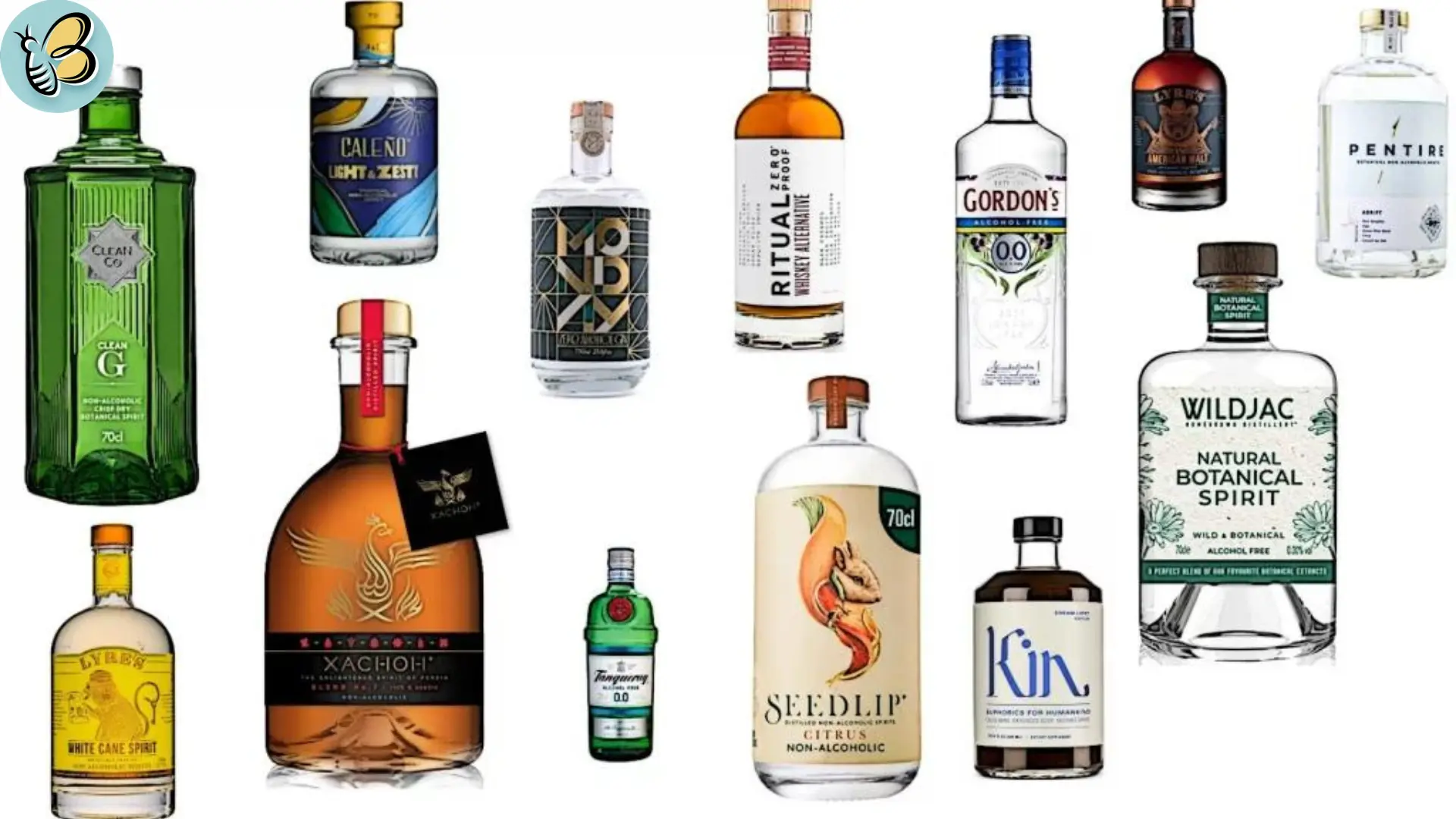
Alcohol-free spirits are rapidly emerging as a sophisticated alternative to traditional alcoholic beverages, providing a complex flavor profile and a sense of occasion without the intoxicating effects. These non-alcoholic spirits are crafted using a variety of botanicals, spices, and natural flavorings, mimicking the taste and experience of their alcoholic counterparts. These beverages are designed for those who wish to enjoy the ritual of a cocktail while abstaining from alcohol, making them ideal for social gatherings, brunches, or simply unwinding after a long day.
De-Alcoholized Wine
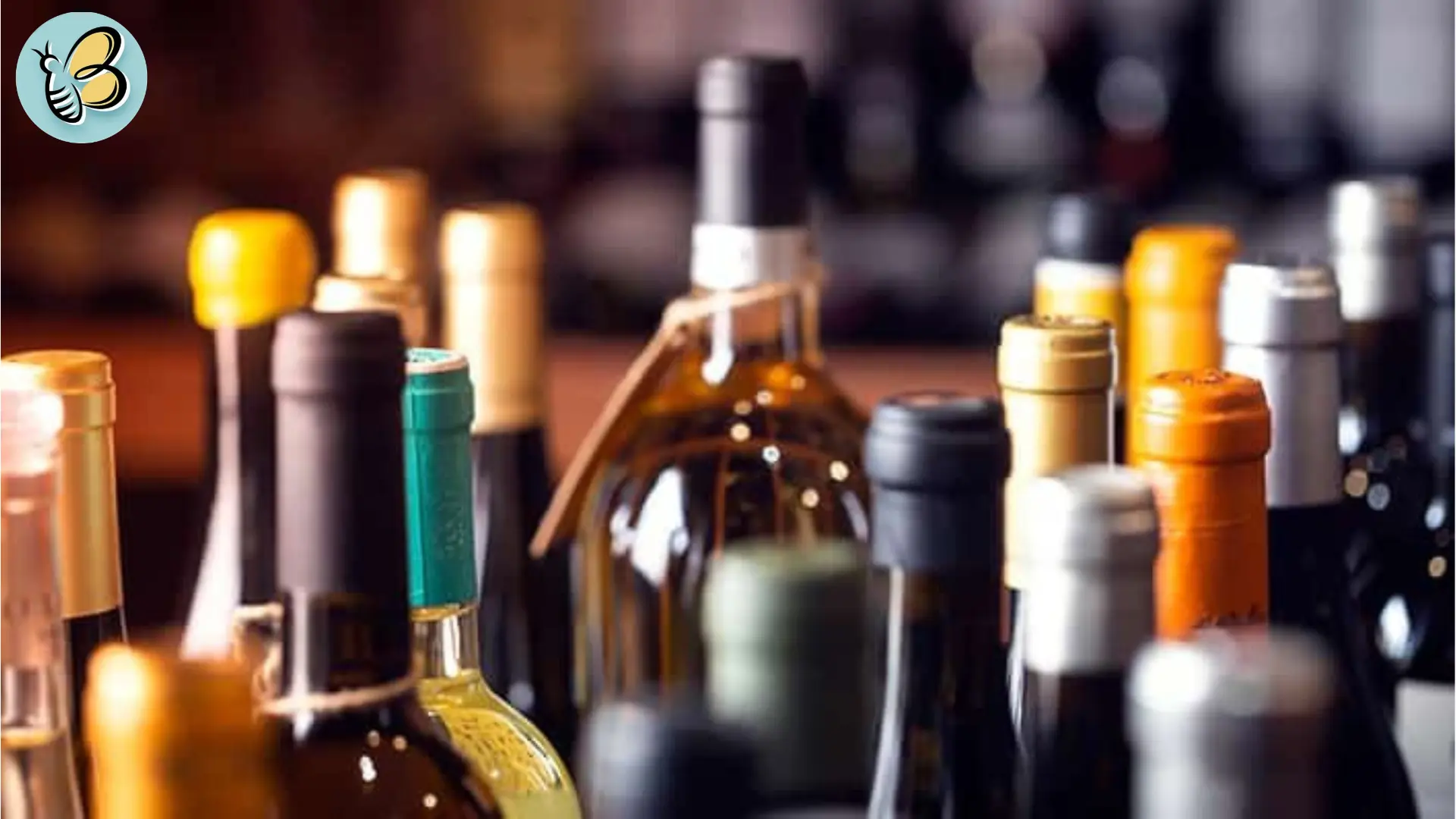
De-alcoholized wine is gaining recognition as a compelling alternative to traditional alcoholic beverages, offering the nuanced flavors of wine without the intoxicating effects. This process involves removing most of the alcohol from wine while retaining its aromatic and taste qualities. De-alcoholization can be achieved through various methods, such as vacuum distillation or reverse osmosis, ensuring that the final product retains the essence of the original wine. This makes de-alcoholized wine an attractive choice for health-conscious consumers who still want to savor the flavors of their favorite varietals without the drawbacks associated with alcohol consumption.
Ginger Beer or Ale
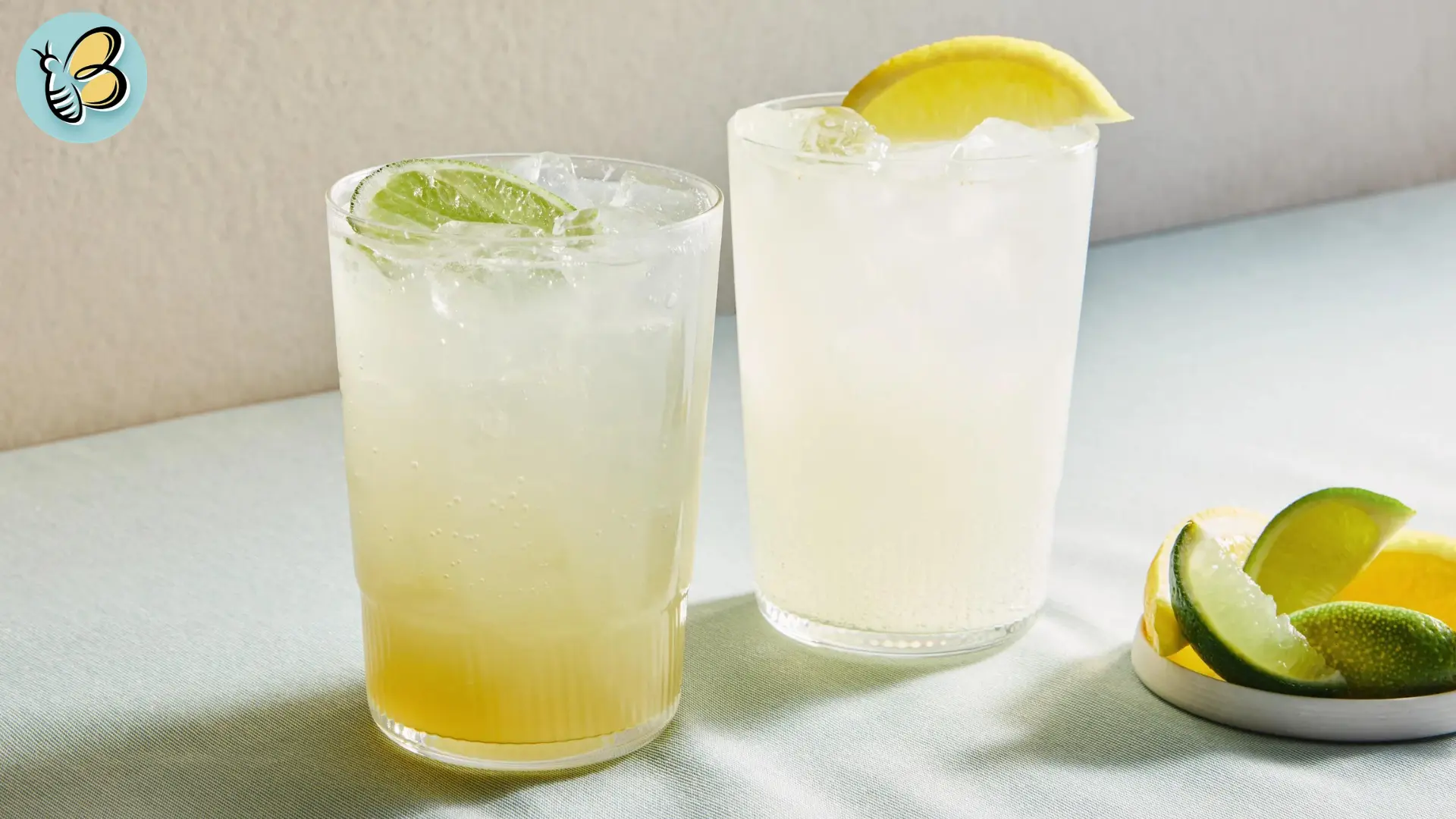
Both drinks offer a satisfying fizz that mimics the sensation of beer, making them excellent alternatives for social occasions. While ginger beer tends to have a spicier kick and is often brewed, ginger ale is typically sweeter and lighter, making it a great option for those who prefer a milder taste. When served in a glass, both drinks can closely resemble traditional lagers, ensuring that you won’t feel out of place at any gathering.
Tips to Reduce Alcohol Intake
Transitioning to alcohol alternatives can profoundly enhance your mood, improve your sleep quality, and boost your energy levels. By making mindful choices, you not only promote better physical health but also significantly lower the risk of serious health issues, including certain types of cancer. Here are some practical tips to help you reduce your alcohol intake while maintaining a fulfilling social life:
- Set Alcohol-Free Days: Challenge yourself to designate specific days as alcohol-free, such as from Sunday to Thursday. This gives your body a break and helps establish healthier habits.
- Track Your Drinks: Keep count of your standard drinks to stay within the recommended limits set by health authorities. Being mindful of your consumption can prevent overindulgence.
- Explore Low-Alcohol Options: Consider trying low-alcohol or alcohol-free beers, wines, and spirits. These alternatives can provide the same flavors without the negative effects of alcohol.
- Alternate Drinks: When socializing, alternate between alcoholic beverages and non-alcoholic options like sparkling water or a refreshing soda with lime. This not only helps reduce your alcohol intake but keeps you hydrated.
- Dilute Your Drinks: If you choose to drink, try diluting alcoholic beverages with ice or soda water. This can lower the alcohol content while still allowing you to enjoy the flavors.
- Stay Hydrated: Keep water on hand to quench your thirst and help you sip alcoholic drinks more slowly. This can aid in moderation and prevent overconsumption.
- Create an Alcohol-Free Home: If possible, keep your living space alcohol-free. This makes it easier to resist temptation and encourages healthier habits.
- Engage in Community Activities: Join local events or groups focused on wellness and mindful drinking. This will help keep you motivated and connected with others on a similar journey.
- Identify Your Triggers: Recognize situations that prompt you to reach for alcohol, whether it’s stress, fatigue, or social pressure. When you feel the urge, opt for healthier distractions, like going for a walk, reading, or practicing mindfulness.
What can I replace alcohol with to relax?
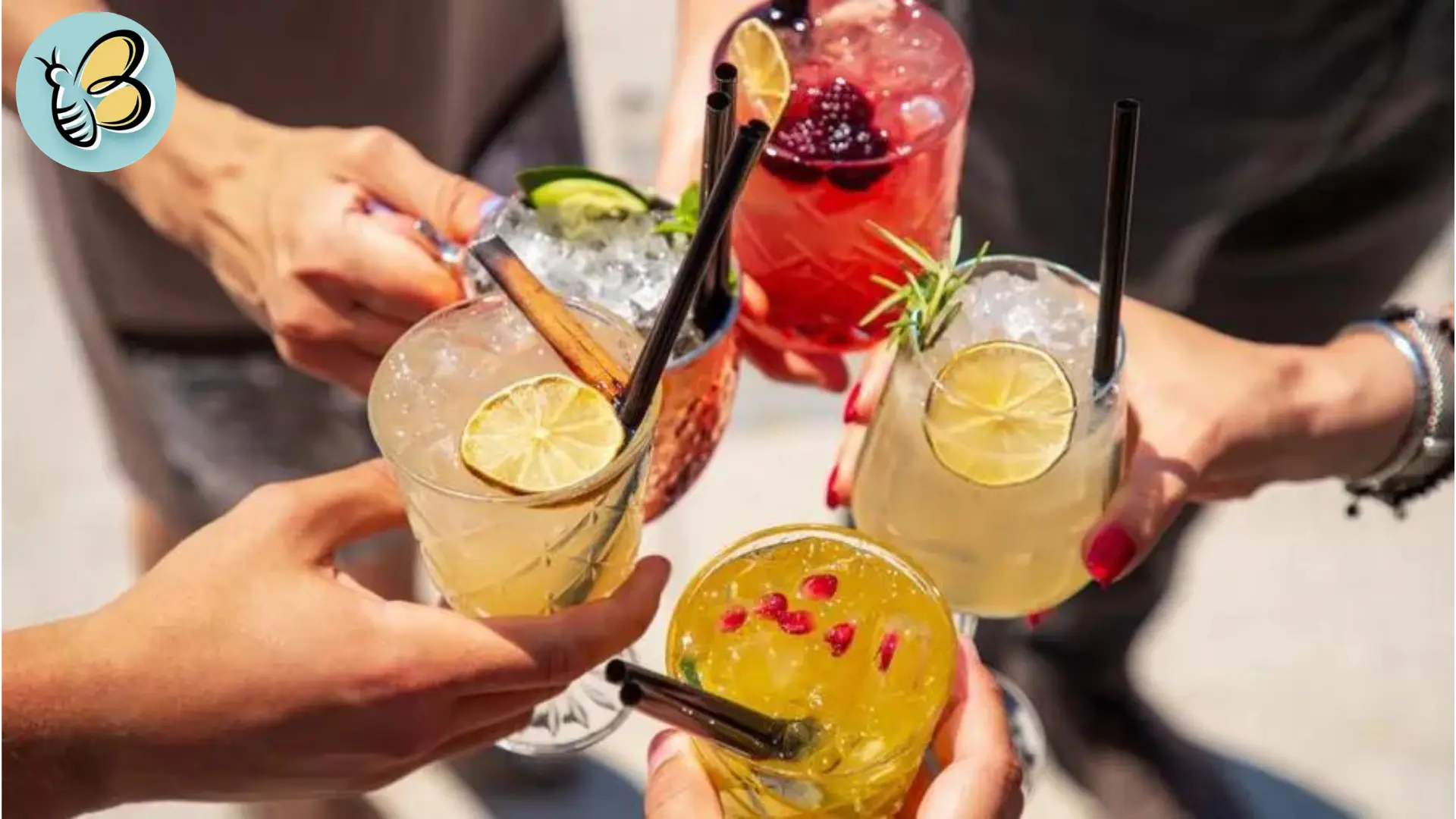
If you’re seeking effective ways to unwind without reaching for a drink, there are numerous alternatives that can help you relax and relieve stress. Engaging in physical activities reduces the production of stress hormones like cortisol and adrenaline while flooding your body with endorphins. The key to breaking this habit lies in finding enjoyable alternatives. Instead of pouring a glass, consider brewing a calming herbal tea or indulging in a relaxing activity that promotes mindfulness, like yoga or meditation. If socializing is your preferred way to relax, it’s important to remember that you can still enjoy the company of friends without alcohol. Engaging in fun group activities, such as rock climbing or a group fitness class, can offer that same dopamine boost and connection while keeping the focus on health. These alternatives not only provide excitement and camaraderie but also ensure that you leave behind the need for alcohol in your social life.
How does stopping drinking improve your health?
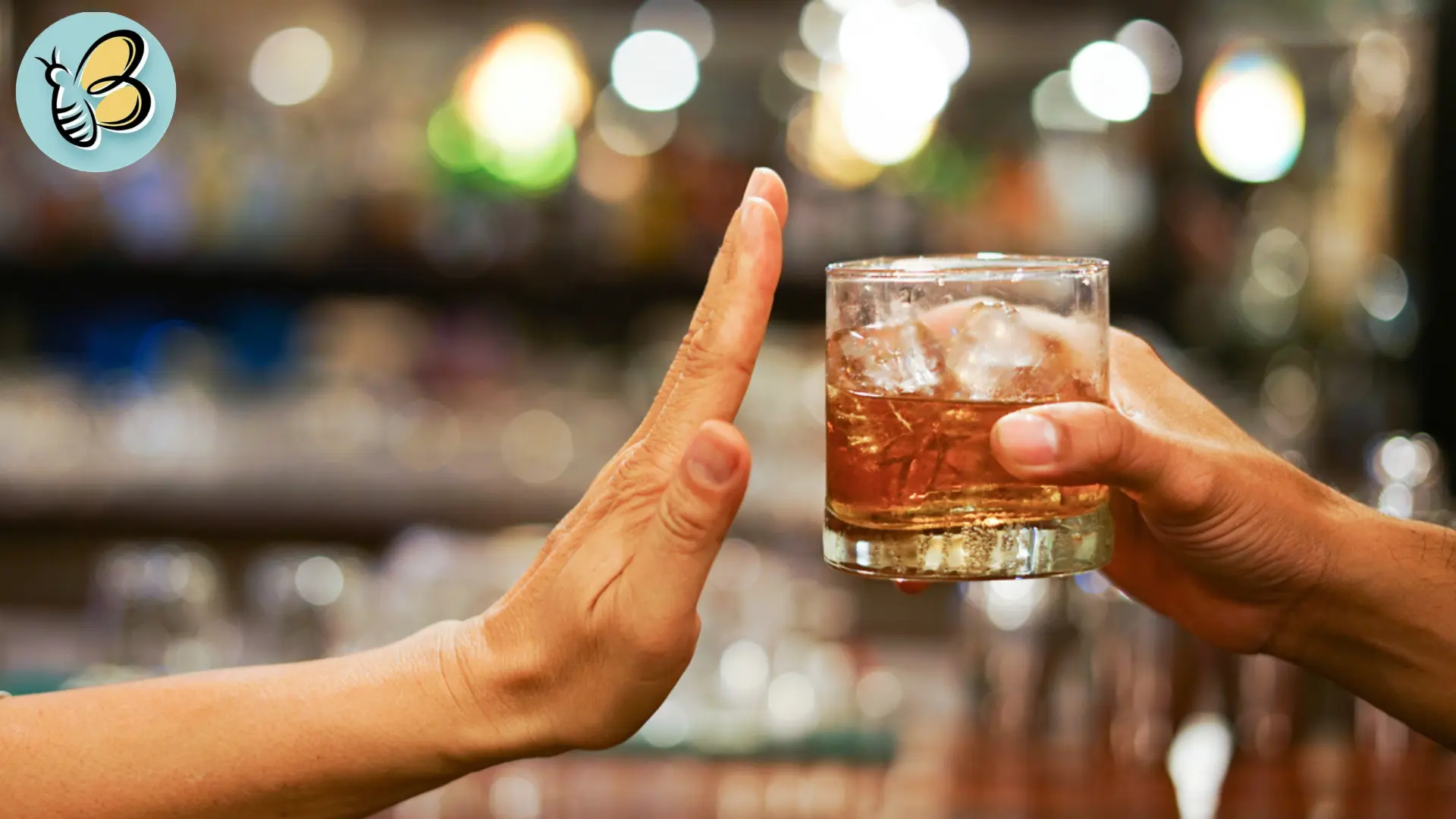
Stopping drinking can lead to profound improvements in both physical and mental health. When you eliminate alcohol from your life, you may notice significant changes in how you feel and function daily. Here are some of the key benefits of quitting alcohol that can enhance your overall well-being:
- Better Sleep Quality: Alcohol disrupts sleep cycles, leading to poor rest. Quitting can improve your sleep quality and help you wake up feeling refreshed and energized.
- Enhanced Liver Health: Reducing or eliminating alcohol gives your liver a break, lowering the risk of liver disease and other alcohol-related health issues.
- Improved Mental Well-Being: Alcohol can worsen anxiety and depression. Stopping drinking often leads to reduced feelings of anxiety, better mood stability, and clearer thinking.
- Healthier Eating Habits: Without the calories from alcohol, many people make healthier food choices, which can result in weight loss and improved overall physical health.
- Genuine Social Connections: Socializing without alcohol fosters deeper, more meaningful relationships. It encourages connections based on shared experiences and activities rather than drinking.
- Increased Energy Levels: With better sleep and improved nutrition, you’ll likely experience higher energy levels throughout the day.
- Reduced Risk of Health Issues: Cutting back on alcohol can lower the risk of serious health problems, including certain cancers and heart disease.
- Greater Emotional Resilience: By developing healthier coping mechanisms, such as exercise or hobbies, you can better manage stress and emotional challenges without turning to alcohol.
What Can I Drink at Night to Replace Alcohol?
If you’re looking for satisfying alternatives to alcohol for your evening wind-down, there are plenty of delicious and relaxing options to explore. Instead of reaching for that evening glass of wine or beer, consider the above-mentioned refreshing and calming drinks that can help you unwind without the negative effects of alcohol.
What Is a Good Replacement for Wine?
If you find yourself missing your nightly glass of wine, there are plenty of satisfying alternatives that can deliver similar flavors and experiences without the alcohol. Here are some delightful substitutes to enjoy instead:
- Red Wine: For those who relish the rich, bold flavors of red wine, consider sipping on pomegranate or cherry juice for a sweet yet complex taste.
- White Wine: If the crisp, dry taste of white wine is your preference, apple or white grape juice can be a refreshing substitute.
- Sparkling Wine: If you enjoy the celebratory bubbles of champagne or prosecco, sparkling juice is an excellent replacement.
Are non-alcoholic beers non-alcoholic?
When it comes to non-alcoholic beers, it’s critical to understand what “non-alcoholic” really means. While these beverages are designed to mimic the taste and experience of traditional beers without the intoxicating effects, they often contain small amounts of alcohol. In the United States, the Alcohol and Tobacco Tax and Trade Bureau (TTB) defines non-alcoholic beer as containing 0.5% alcohol by volume (ABV) or less.
This means that while they are significantly lower in alcohol compared to regular beer, they are not completely alcohol-free. For most people, this small amount is negligible and unlikely to produce any noticeable effects, making non-alcoholic beers a great option for those looking to cut back on alcohol while still enjoying the social aspects of drinking.
Do non-alcoholic spirits taste like alcohol?
When it comes to non-alcoholic spirits, many people wonder if they can truly replicate the flavor profile of traditional alcoholic beverages. The good news is that non-alcoholic spirits have come a long way in recent years, with many brands working tirelessly to craft products that deliver complex flavors without alcohol.
These spirits often utilize a blend of botanicals, herbs, and spices to create a rich and layered taste experience. For instance, you might find options that offer the warm, aromatic notes of gin or the bold character of whiskey, all while being free of alcohol. However, while they can mimic some aspects of the flavor, the absence of alcohol can slightly alter the overall experience.
Can non-alcoholic drinks give you a hangover?
When it comes to non-alcoholic drinks, the question of whether they can lead to a hangover is an intriguing one. The short answer is typically no. Since non-alcoholic beverages contain little to no alcohol—often defined as having 0.5% ABV or less—they generally won’t produce the same effects as traditional alcoholic drinks that can lead to hangovers.
However, it’s essential to keep in mind that some non-alcoholic drinks can still have ingredients that might upset your stomach or cause other reactions. For example, if you indulge in sugary sodas or certain flavored drinks, the excess sugar could leave you feeling sluggish the next day.
How many alcohol-free nights should you have?
If you find yourself reaching for a drink every night, transitioning to alcohol-free evenings may feel challenging at first. A practical approach is to start small and set achievable goals, like designating one night a week as an alcohol-free night. Once that feels manageable, increase it to two nights and gradually continue cutting back at a pace that feels right for you.
After establishing a regular alcohol-free schedule, consider committing to a full month without alcohol, like the concept of “Dry January.”
